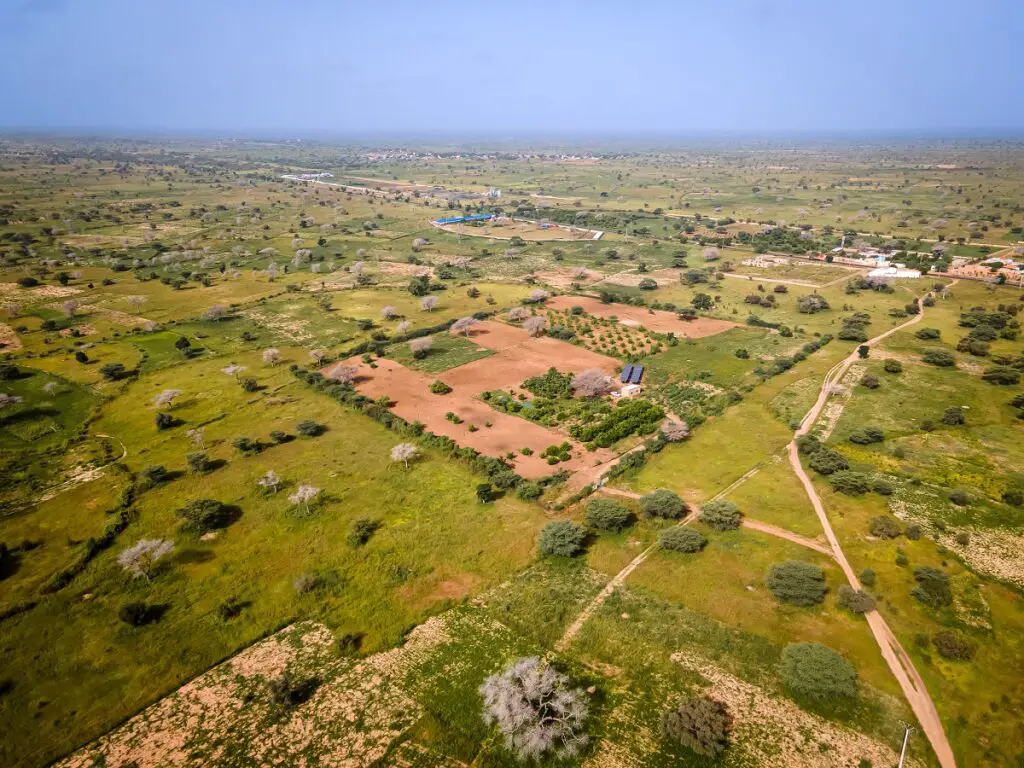- Agribusiness including the entire agriculture and livestock sector represents approximately 17 per cent of Senegal’s GDP.
- The agriculture sector is currently employing 70 per cent of the population.
- Food imports, especially rice, which is the population’s main staple crop with imports accounting for 65 percent of the national consumption.
The African Development Bank (AfDB) Group has approved a $95 million (€86.89 million) loan to Senegal to develop an agribusiness processing zone in the north of the country.
The Bank’s contribution accounts for 30.7 per cent of the estimated €283.05 million total project cost. The Islamic Development Bank (21.2 per cent), the West African Development Bank (15.9 per cent), Sponsor Dette (19.3 per cent) and Sponsor Equity (7.7 per cent) are the other contributors to the implementation of ‘Projet Agropole Nord‘, in English, ‘Agricultural Hub North Project’.
Agribusiness plant to enhance forestry, and fisheries segments
The project is intended to improve industrial processing capacities for agricultural, forestry, pastoral, fisheries products and related services, while also sustainably increasing household incomes and food security. The Senegalese Government is contributing 5.2 per cent of the project cost.
The project is one of five integrated and competitive agricultural hubs created by the Senegalese Government under its Plan for an Emerging Senegal for 2025. It comes after an earlier Board approval of the Agropole Sud (Southern Agropole) and Agropole Centre (Central Agropole) projects to cover the regions of Kolda, Sédhiou and Ziguinchor, in southern Senegal, and the regions of Diourbel, Fatick, Kaffrine and Kaolack, in the centre of the country.
The project will be implemented by the Senegalese Ministry of Industrial Development and of Small and Medium Industries, with the objective of boosting exports and strengthening entrepreneurship.
“The project will foster the emergence of three agribusiness development hubs and will facilitate the networking of stakeholders in the value chains,” said Mohamed Chérif, the AfDB’s Country Representative in Senegal. “It will serve as a multi-sector platform for the incubation and integration of technologies, equipment and services to support small and medium-sized enterprises, industries and professional agricultural organizations. These hubs will help reduce the factors of migration-related fragility and climate change that can be seen in the project area.”
Read also: Investing in agri-tech startups in Africa will power agriculture
About 2.8 million people set to benefit
The project intervention area covers the regions of Louga, Matam and Saint-Louis, with a combined population of some 2.8 million people. It has significant agricultural, forestry, pastoral and fisheries potential and provides more than 80 percent of national rice production, 90 percent of its industrial tomato production and 50 per cent of its onion production.
With a sea coast, the River Senegal and Lake Guiers, the Saint-Louis region produces 122,000 tonnes of fish per year. It is also home to several private investments in the Senegal river valley.
The implementation of the Agropole Nord project marks a strategic initiative aimed at fostering the development of three agribusiness hubs in the regions of Ogo, Bokhol, and Dahra. These hubs, spanning 130 to 150 hectares each, will be complemented by 14 aggregation and services centers strategically positioned to facilitate the seamless networking of stakeholders across the agricultural value chain. This comprehensive approach underscores a commitment to creating a robust ecosystem that fosters collaboration and synergy among various players in the agricultural sector.
As the project unfolds, its anticipated outcomes are poised to have a transformative impact on the region. Agropole Nord is set to become a catalyst for the processing and marketing of an impressive 2.12 million tonnes of agricultural products, a milestone expected to be realized from its fifth year of operation onwards. The significance of this extends beyond mere economic and financial implications, as the project is forecasted to generate a substantial employment boost.
Agribusiness project to give rise to 300,000 jobs
Projections indicate the creation of 129,800 direct jobs in diverse sectors such as agriculture, forestry, pastoral, and fisheries. Additionally, there is an expected ripple effect with the generation of 298,800 indirect jobs in associated services, presenting a promising avenue for socio-economic development and prosperity in the region.
In essence, Agropole Nord emerges as a multifaceted endeavor, not only fostering agricultural development but also acting as a catalyst for employment, economic growth, and the establishment of resilient agribusiness hubs. The project’s commitment to integrating various stakeholders and creating a networked value chain positions it as a pivotal force in the sustainable development of the agricultural landscape in the targeted localities.
